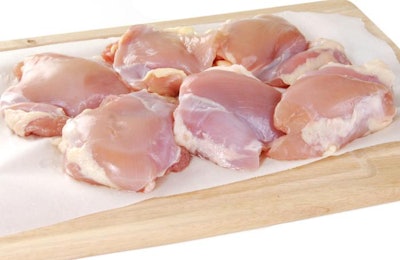
Poultry farmers and traders in the Indian state of Kerala have threatened to take action in protest at the authorities’ latest strategy on the pricing of chicken meat.
According to The Hindu, they intend to break the government ruling and sell their products at a higher price, or to sell their chicken over the state border.
President of the Poultry Farmers and Traders Association of Kerala, Maitheen Picha Rawther, said that the government’s set retail price for chicken of INR87 (US$1.35) per kilo does not even cover the production cost of around INR90, and that traders will have no option but to reopen their shops and sell the meat at INR135 (US$2.09 ) per kilo.
Neighboring state of Tamil Nadu has suffered a recent heatwave and drought, which have led to a shortage of chicken. Poultry farmers there receive INR115 (US$178) per kilo, and Kerala’s producers are considering sending their meat over the border to achieve that higher price if the government does not revise its pricing strategy.
State government control is not the only factor affecting chicken pricing in India.
Rising incomes and the growing popularity of quick service restaurants have contributed to increase demand for chicken in India by as much as 15 to 18 percent annually over recent years, according to a recent report in Economic Times. While production has also risen, it has done so more slowly at around 10 to 12 percent.
From July 1, a General Service Tax (GST) was introduced in India to replace many state and national taxes, reported Financial Express.
The introduction led to changes in the tax rate on many goods and services. While basic foods including fresh meat, chicken and eggs are now exempt from tax, 5 percent GST is changed on packaged foods, and 12 percent on frozen meat products.
These tax changes are affecting India’s poultry farmers indirectly, however.
A member of the Telegana Poultry Federation told The Hans India that the introduction of GST had increased the cost of transporting feed ingredients such as soybean and corn, and hatchery owners have cited the tax as the reason for a recent increase in chick prices.














